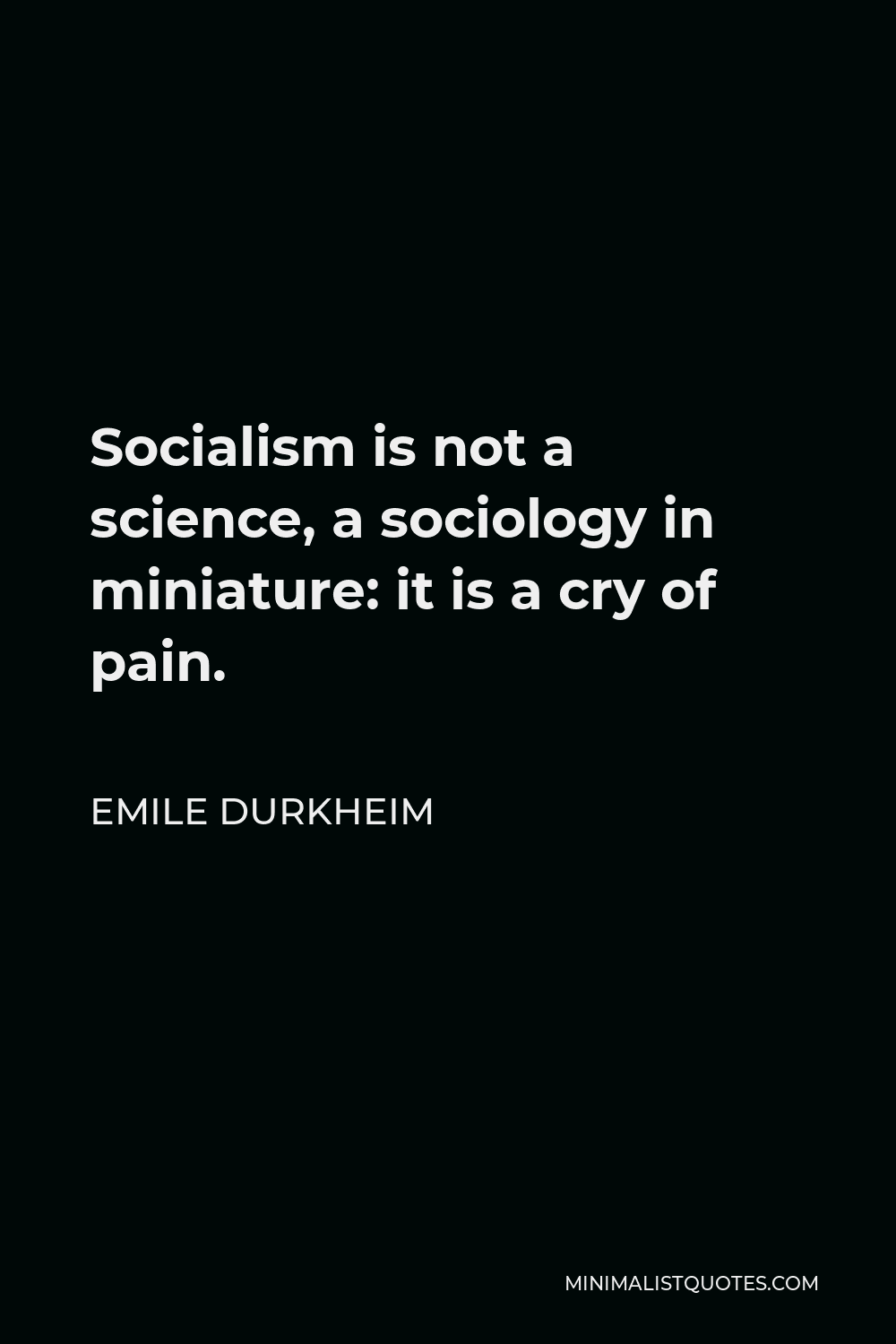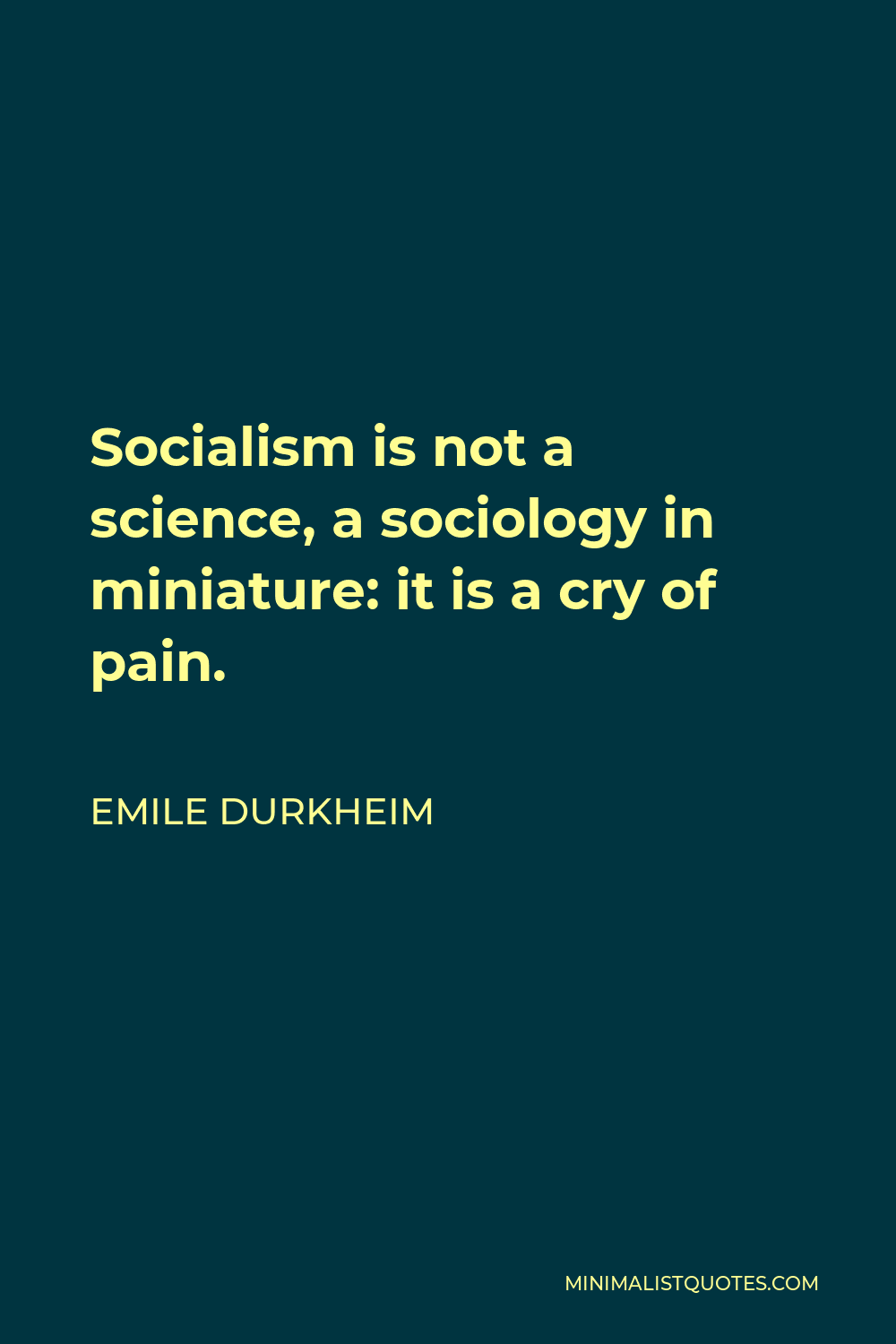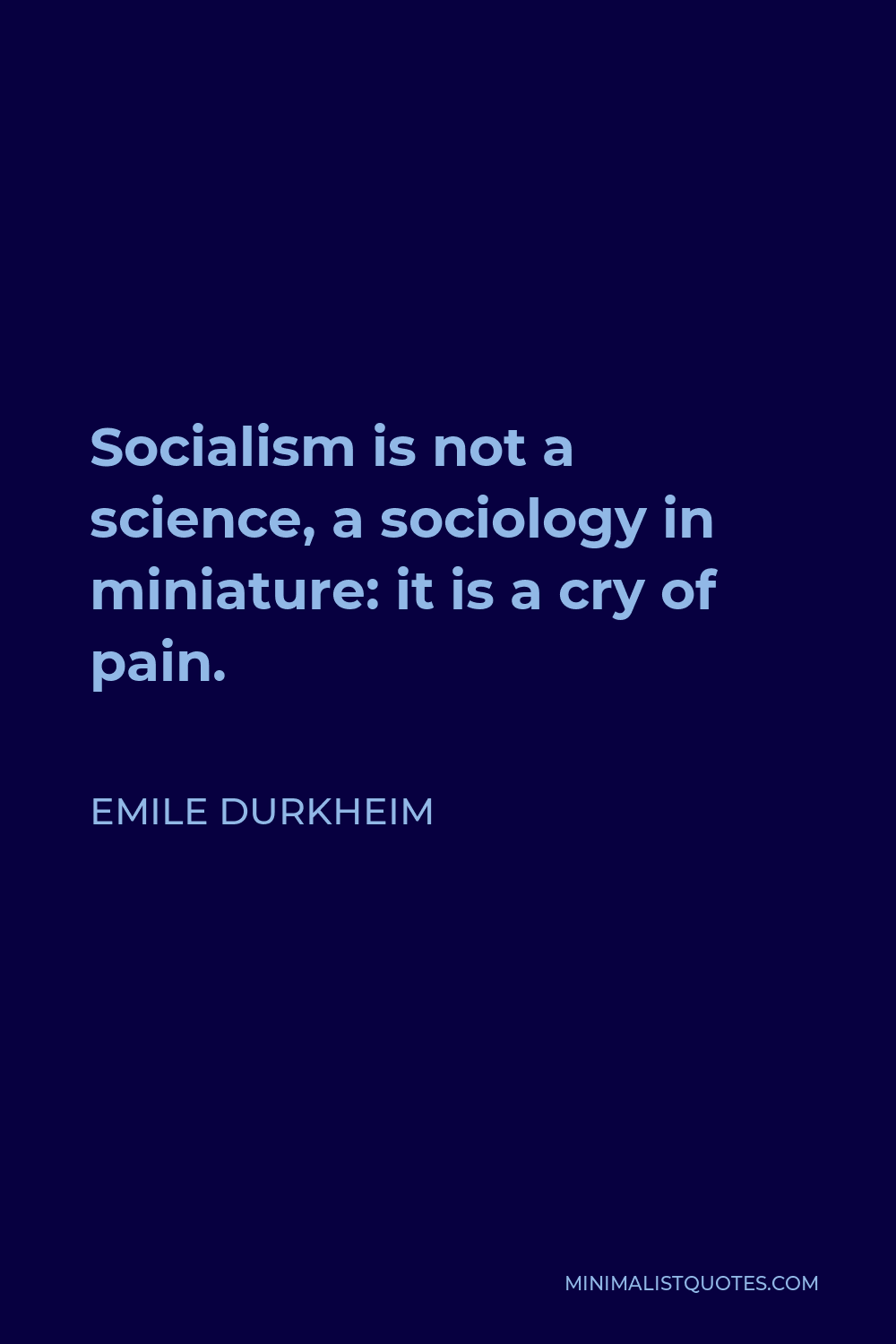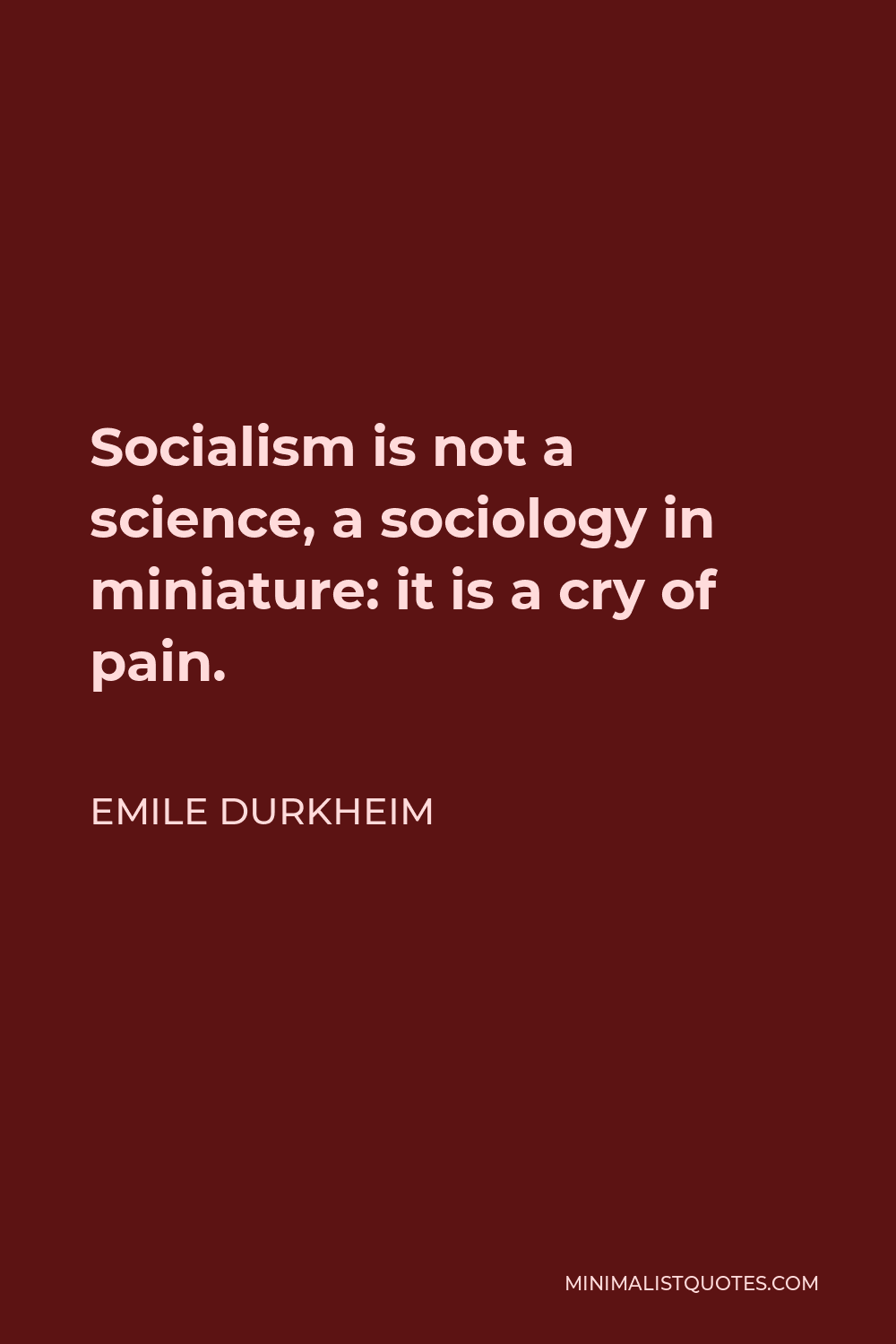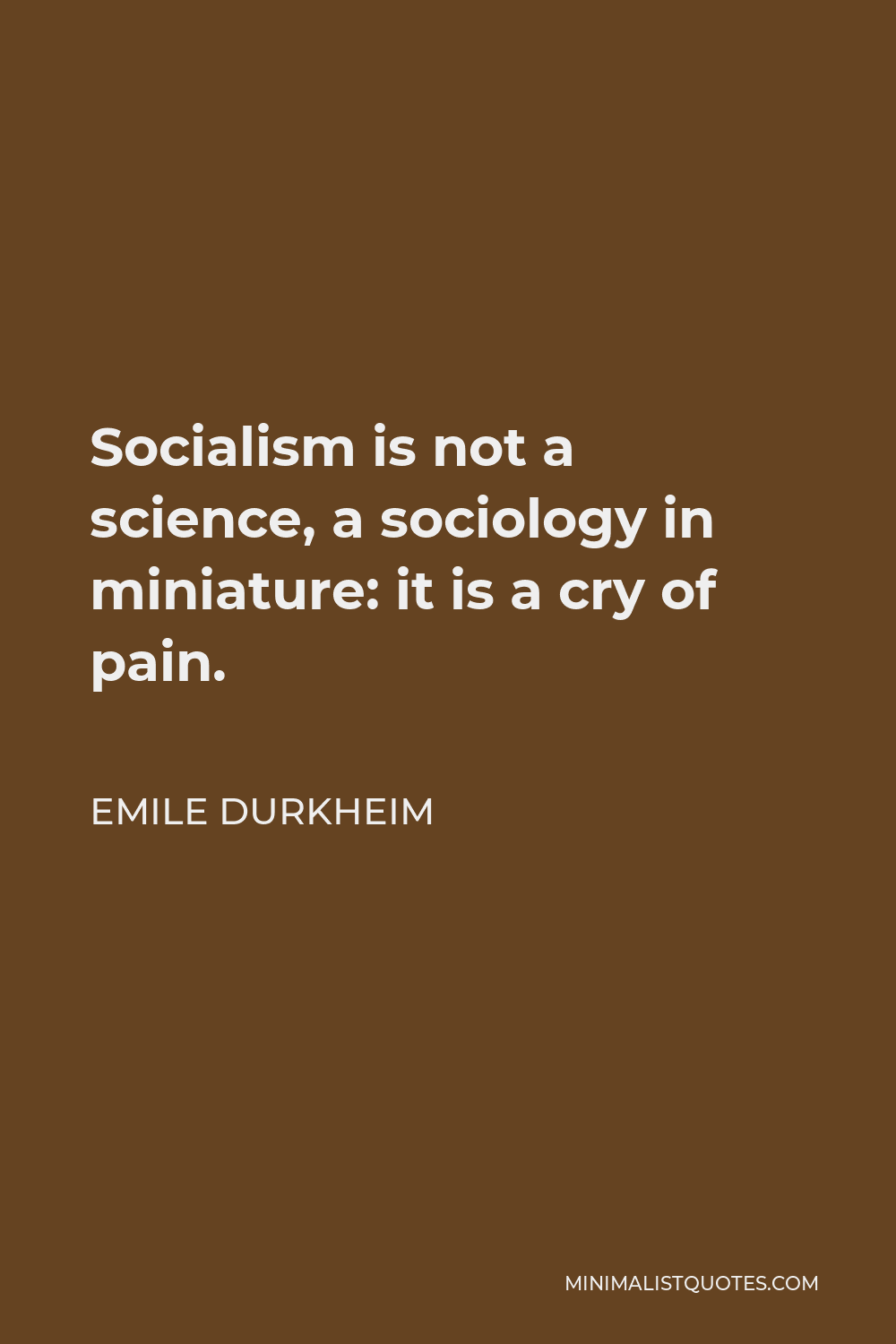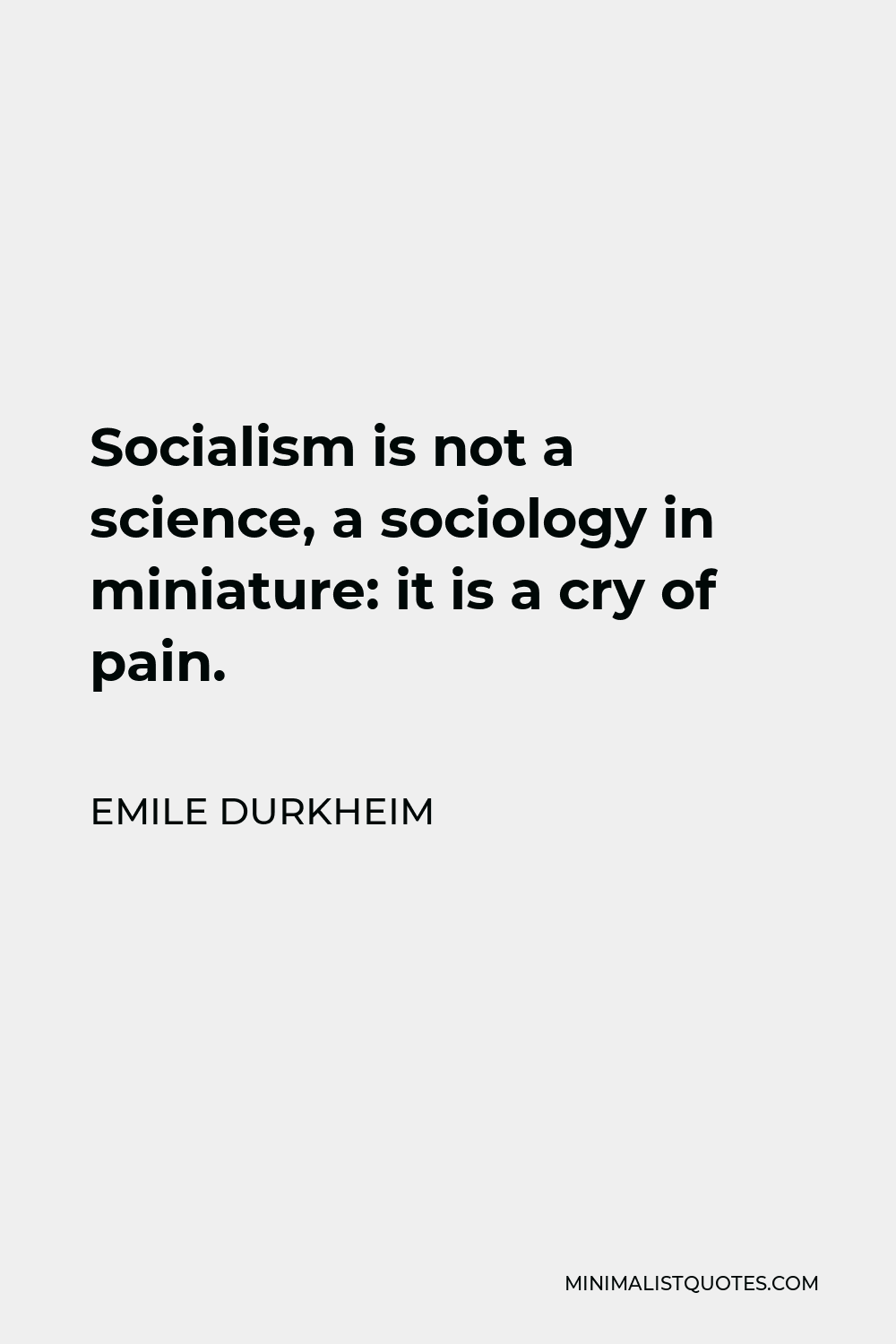Too cheerful a morality is a loose morality; it is appropriate only to decadent peoples and is found only among them.
EMILE DURKHEIMSocialism is not a science, a sociology in miniature: it is a cry of pain.
More Emile Durkheim Quotes
-





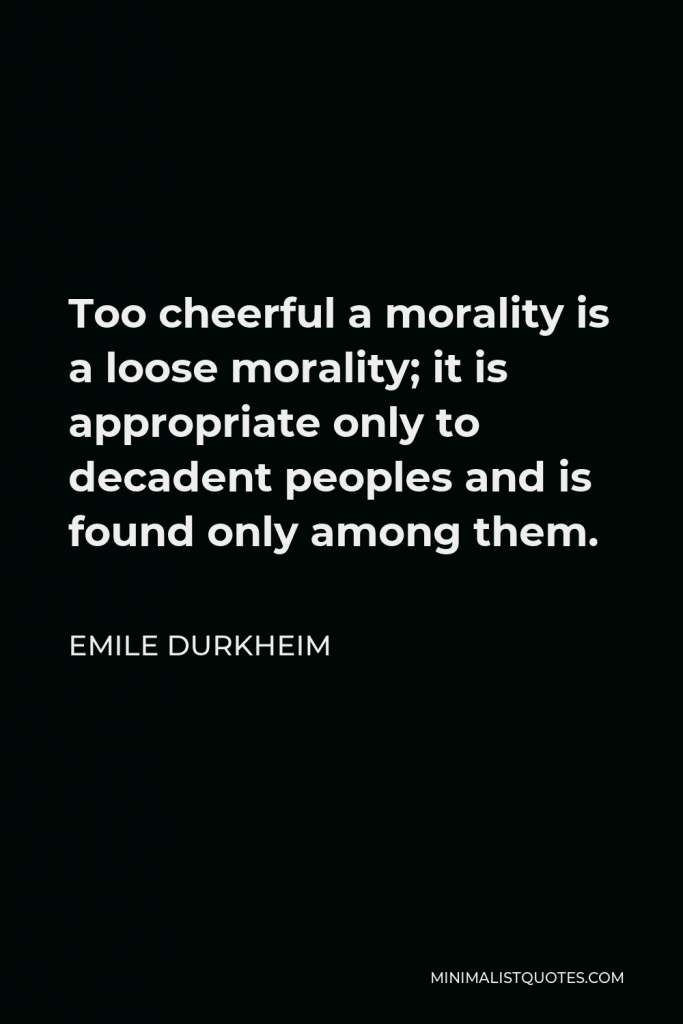

-





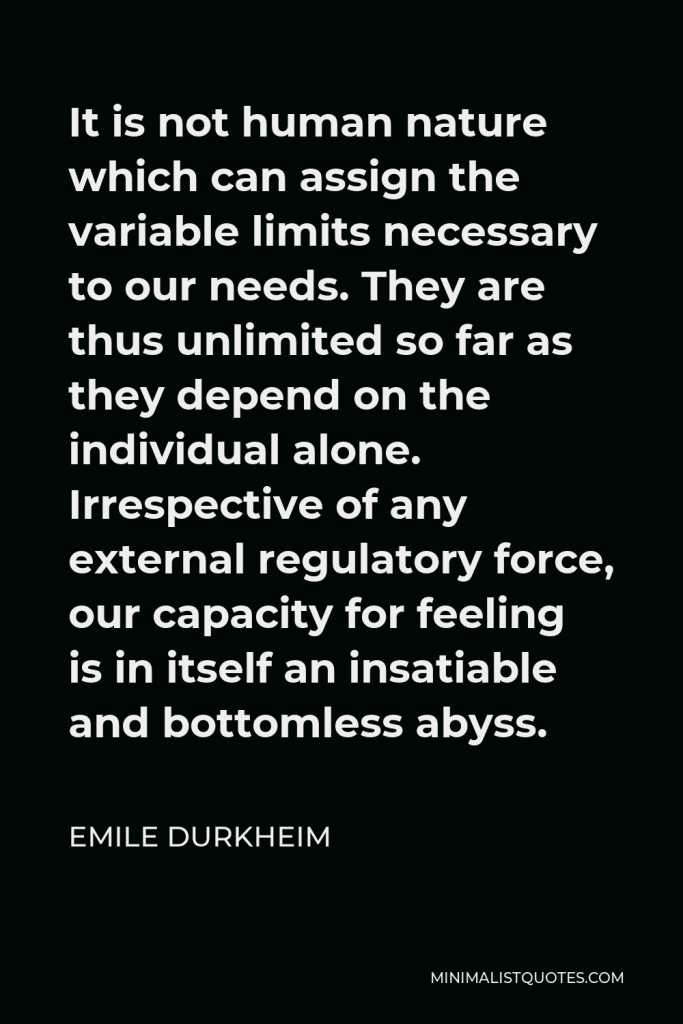

It is not human nature which can assign the variable limits necessary to our needs. They are thus unlimited so far as they depend on the individual alone. Irrespective of any external regulatory force, our capacity for feeling is in itself an insatiable and bottomless abyss.
EMILE DURKHEIM -





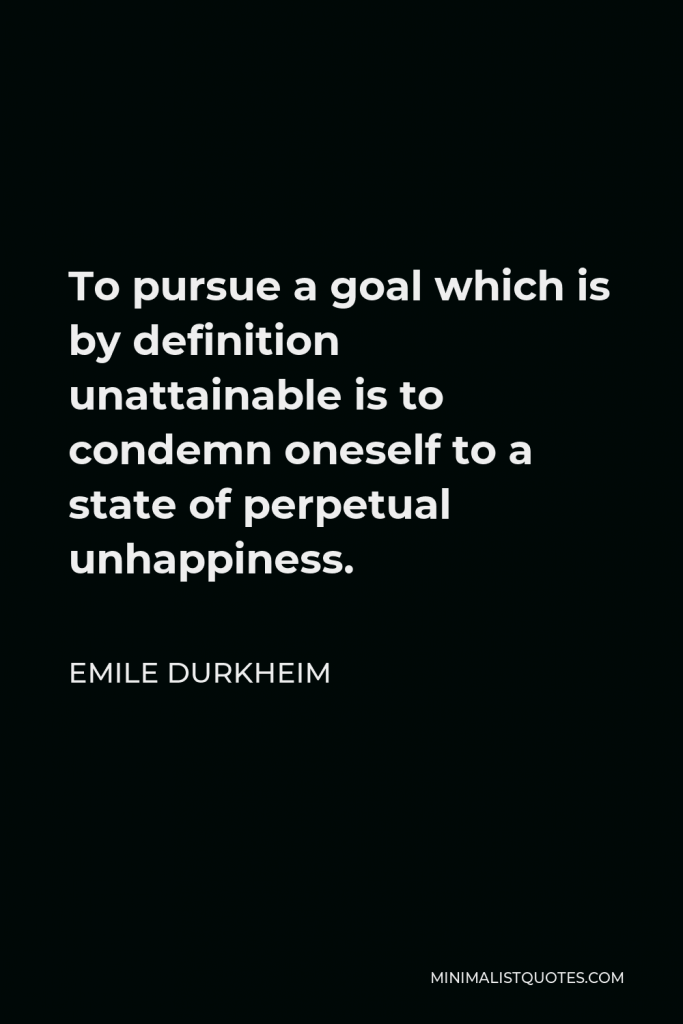

To pursue a goal which is by definition unattainable is to condemn oneself to a state of perpetual unhappiness.
EMILE DURKHEIM -







Maniacal suicide. -This is due to hallucinations or delirious conceptions. The patient kills himself to escape from an imaginary danger or disgrace, or to obey a mysterious order from on high, etc.
EMILE DURKHEIM -





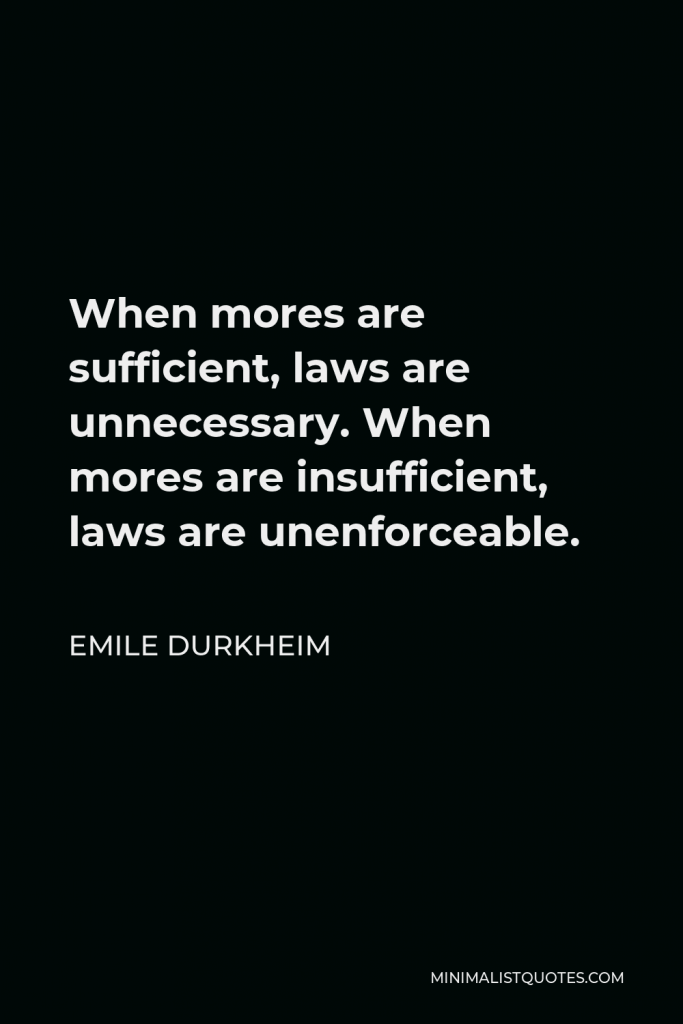

When mores are sufficient, laws are unnecessary. When mores are insufficient, laws are unenforceable.
EMILE DURKHEIM -







A monomaniac is a sick person whose mentality is perfectly healthy in all respects but one; he has a single flaw, clearly localized. At times, for example, he has an unreasonable and absurd desire to drink or steal or use abusive language; but all his other acts and all his other thoughts are strictly correct.
EMILE DURKHEIM -





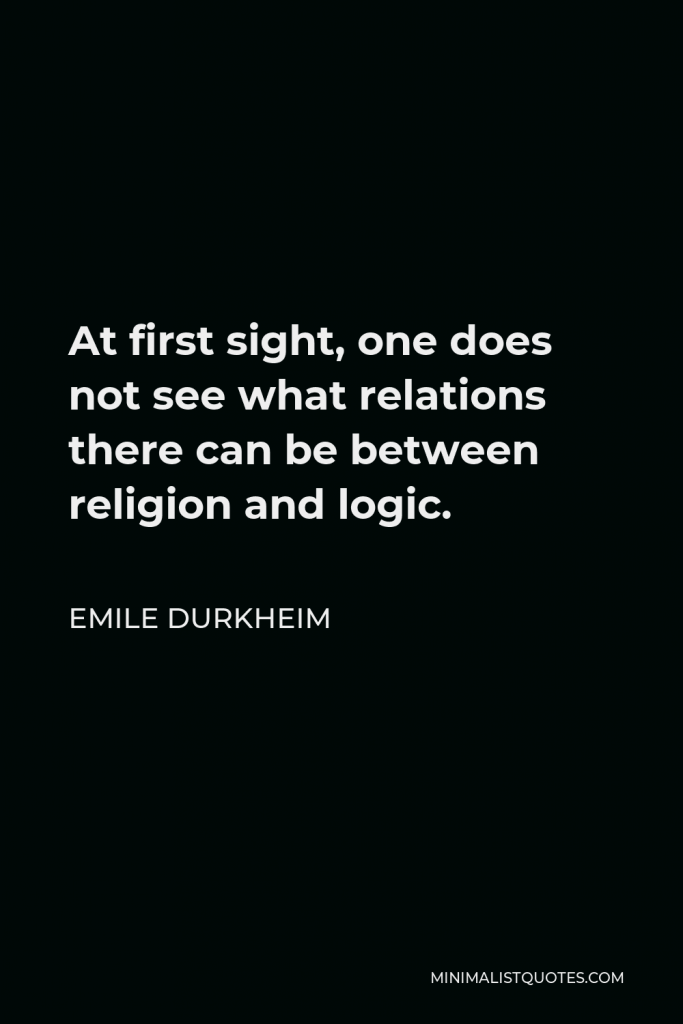

At first sight, one does not see what relations there can be between religion and logic.
EMILE DURKHEIM -





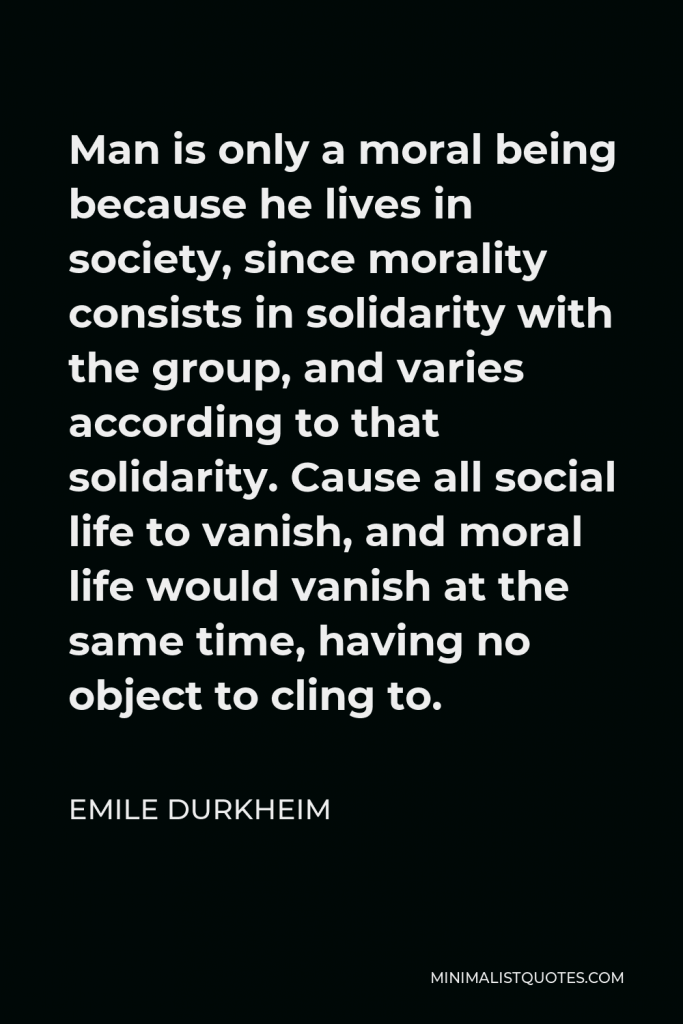

Man is only a moral being because he lives in society, since morality consists in solidarity with the group, and varies according to that solidarity. Cause all social life to vanish, and moral life would vanish at the same time, having no object to cling to.
EMILE DURKHEIM -





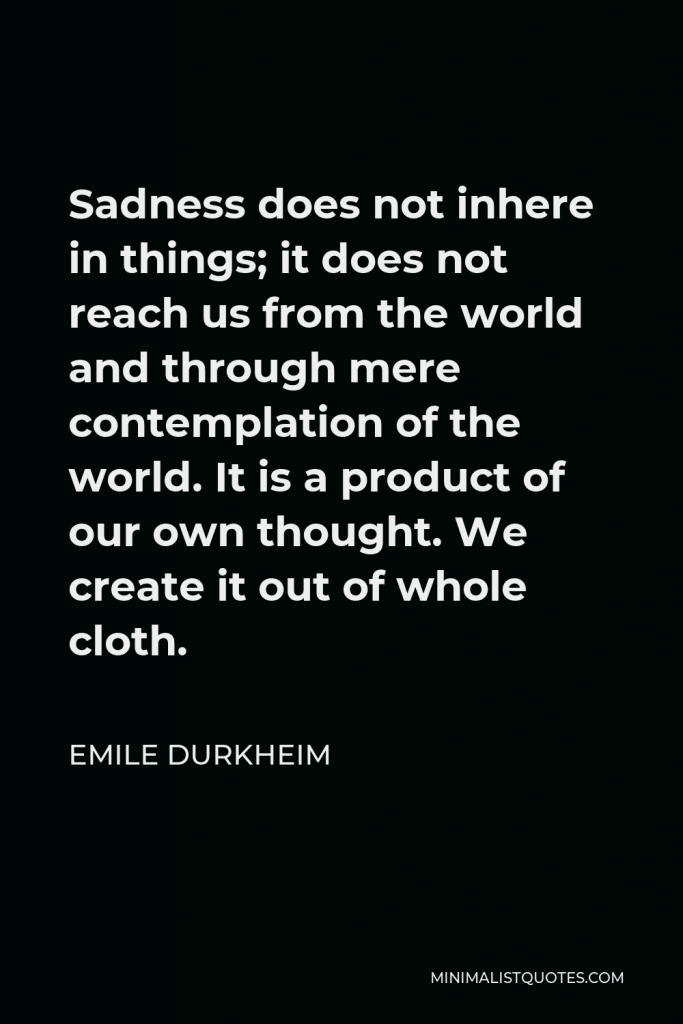

Sadness does not inhere in things; it does not reach us from the world and through mere contemplation of the world. It is a product of our own thought. We create it out of whole cloth.
EMILE DURKHEIM -





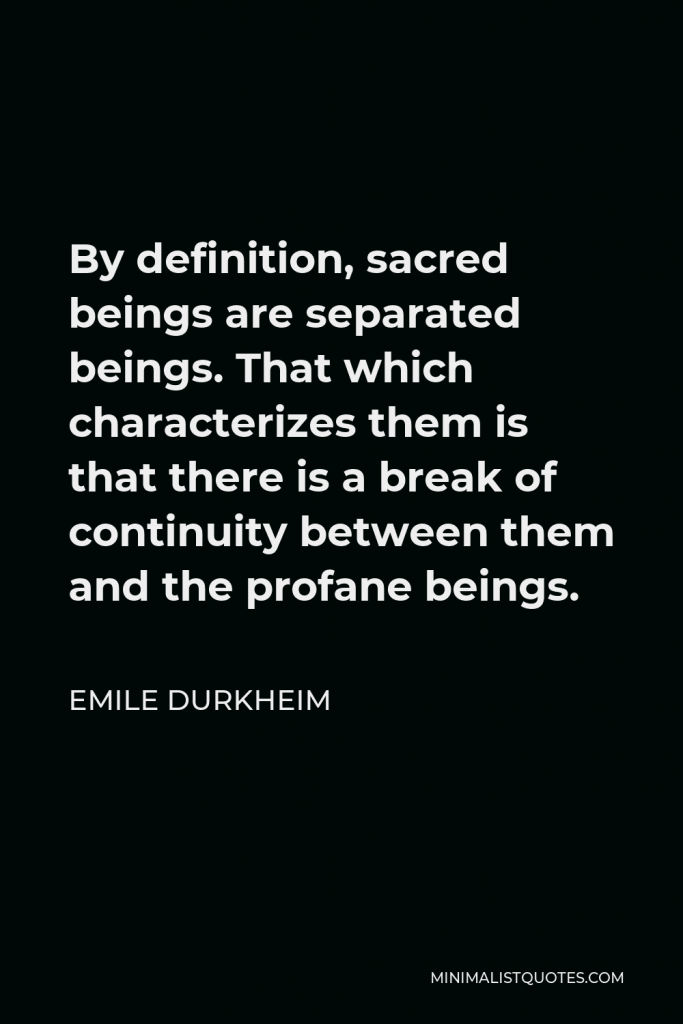

By definition, sacred beings are separated beings. That which characterizes them is that there is a break of continuity between them and the profane beings.
EMILE DURKHEIM -







The term suicide is applied to all cases of death resulting directly or indirectly from a positive or negative act of the victim himself, which he knows will produce this result
EMILE DURKHEIM -







There is no sociology worthy of the name which does not possess a historical character.
EMILE DURKHEIM -







It is too great comfort which turns a man against himself. Life is most readily renounced at the time and among the classes where it is least harsh.
EMILE DURKHEIM -





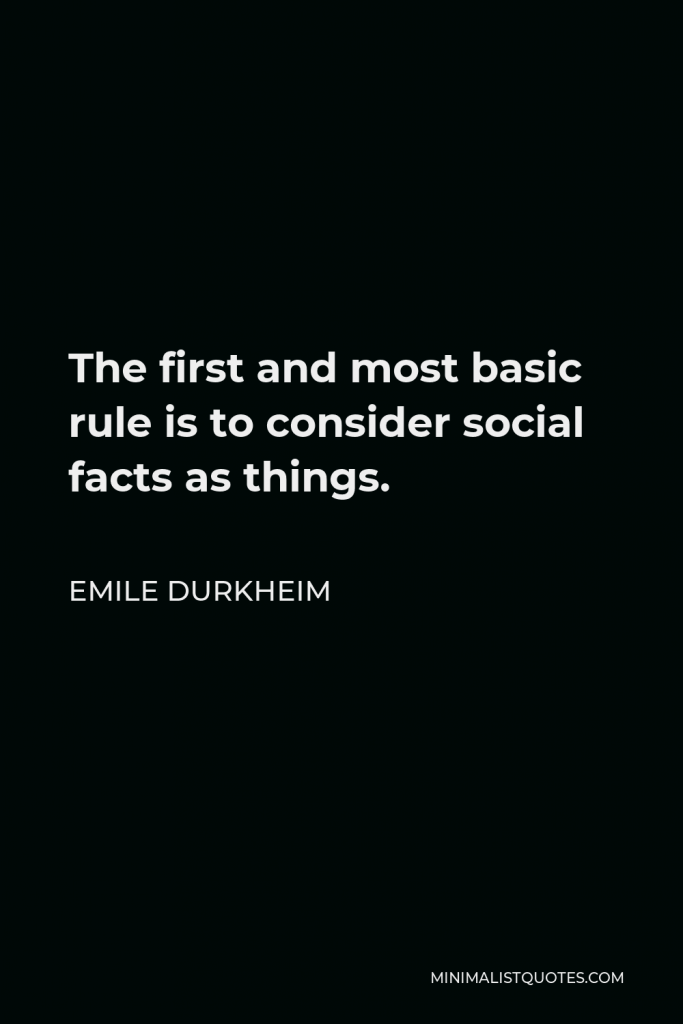

The first and most basic rule is to consider social facts as things.
EMILE DURKHEIM -







An act cannot be defined by the end sought by the actor, for an identical system of behaviour may be adjustable to too many different ends without altering its nature.
EMILE DURKHEIM -





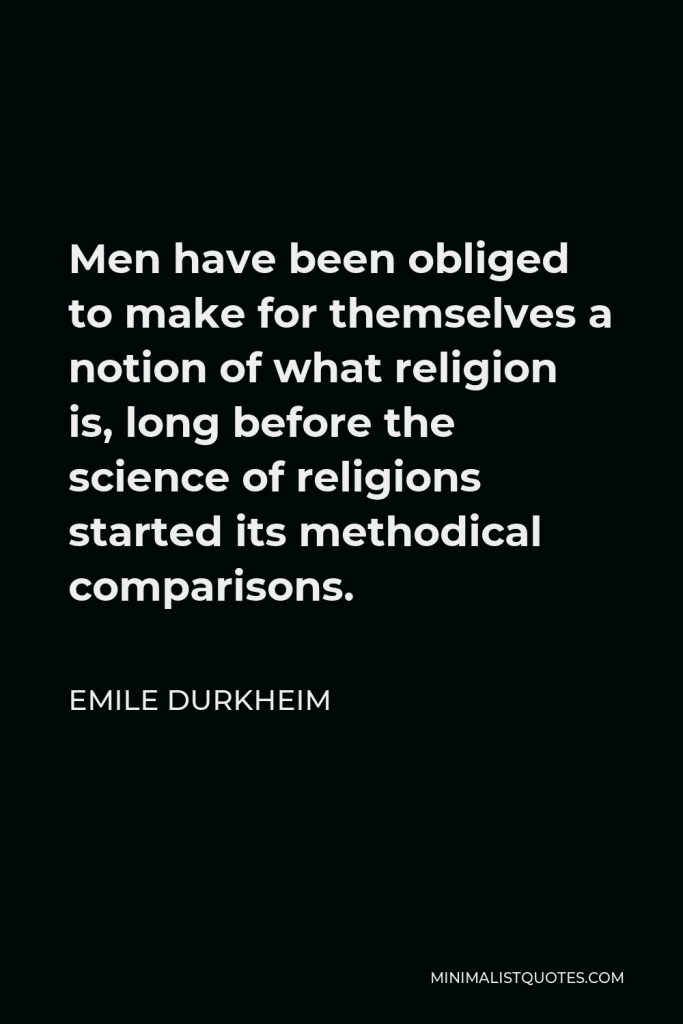

Men have been obliged to make for themselves a notion of what religion is, long before the science of religions started its methodical comparisons.
EMILE DURKHEIM
